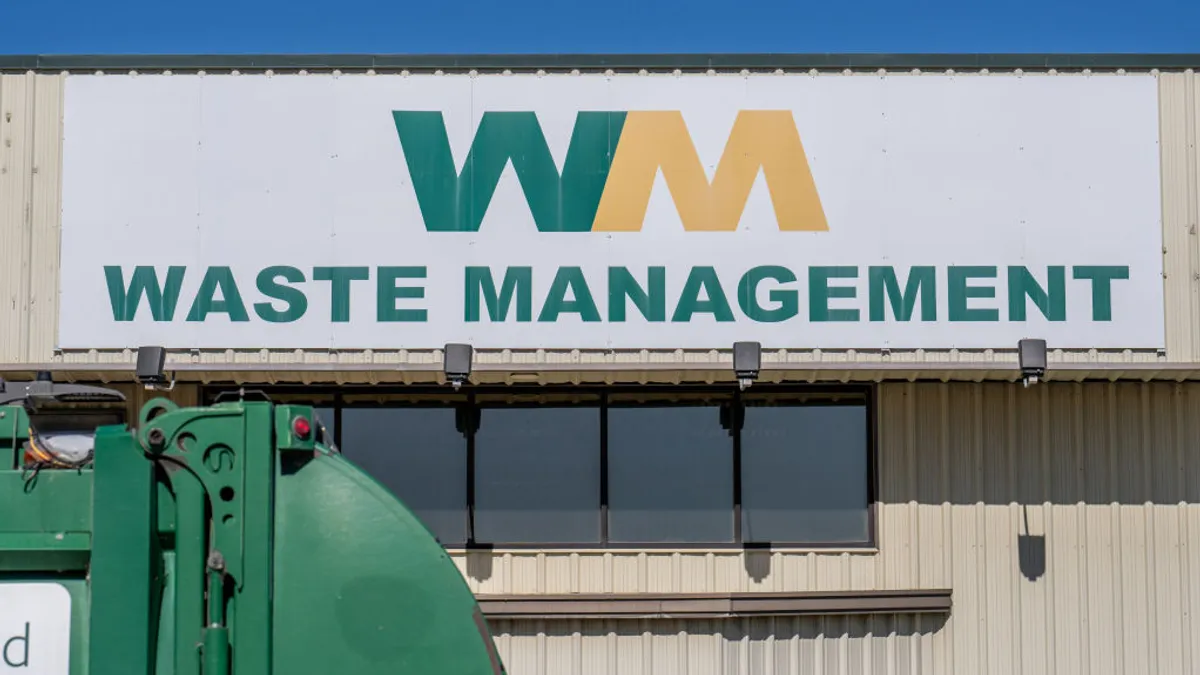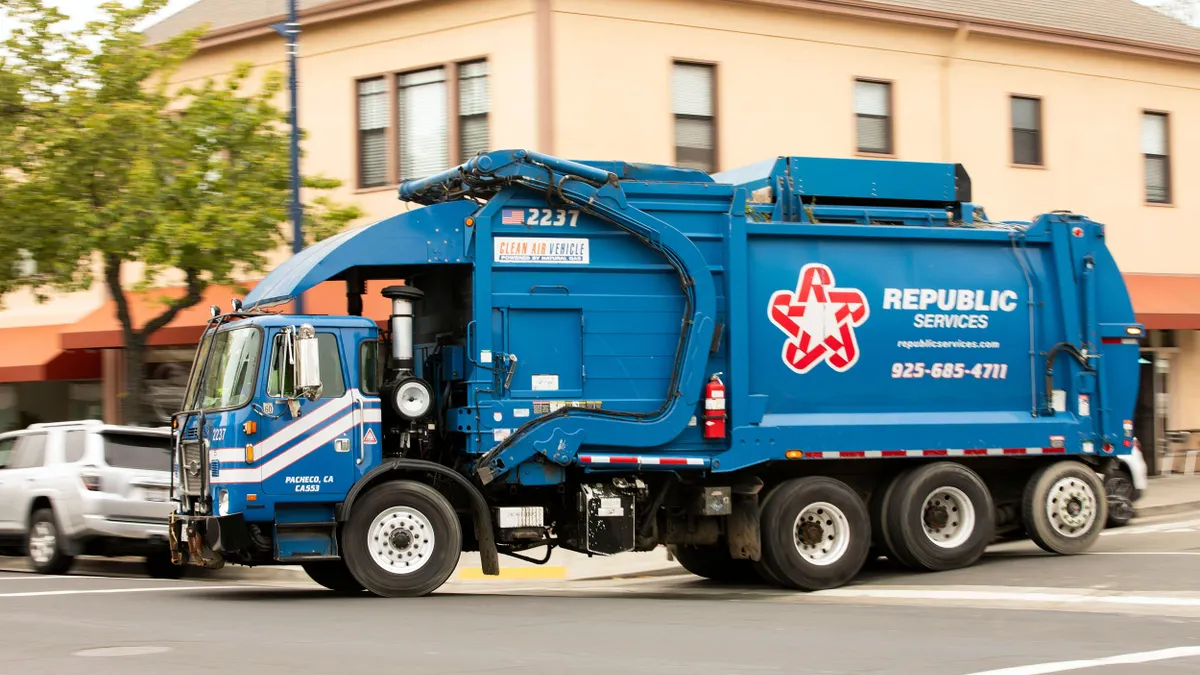Since he became seriously ill with COVID-19 in March, life for sanitation worker Doug Washington has been far from normal.
On the job for nearly 20 years with Royal Waste Services, he had grown accustomed to the unglamorous life of a sanitation worker with its long hours devoted to the strenuous task of collecting New York City’s commercial waste. Washington was proud to play a role in keeping the city clean, so couldn't understand why he and his fellow workers were not receiving hazard pay – despite being considered essential workers.
“The job is already inherently dangerous, but there is no extra hazard pay to compensate for the one more added danger of COVID,” said Washington, who was out for three months recovering from the illness. “Although they call us essential workers, we are still out there and haven’t felt essential at all. If the garbage stops then New York has a problem.”
Soon after recovering, he returned to a workplace wholly transformed. Economic shutdowns reduced the amount of commercial waste that needed to be picked up, in turn reducing the need for workers. With business down, hours were cut and some workers were laid off despite the fact that Royal Waste received more than $5.2 million in funding from the federal Paycheck Protection Program (PPP). Royal Waste did not respond to a request for comment.
With reduced hours, no hazard pay and a family to support, the pandemic caused Washington to grow disillusioned.
“COVID has definitely changed the way I see the job, especially when you pride yourself on doing the job at the highest level. It changes your thoughts, that you think 'there has to be a better way to provide for my family.'”
The pandemic has had devastating effects across many parts of the commercial waste sector. In June, the Environmental Research & Education Foundation and the National Waste & Recycling Association (NWRA) found that 67% of industry respondents had experienced a substantial decrease in commercial waste. They also found that 70% were experiencing or expecting a decrease in revenue. Third quarter earnings results from public companies and other recent reports have shown commercial waste volumes steadily increasing throughout the year, but they have yet to recover to pre-pandemic levels.
“Through this pandemic, particularly early on, we saw a 20% rise in the curbside collection, and recycling went up by 5%”, said Brandon Wright, NWRA’s vice president of communications. “But we saw an inverse in the commercial collection [by] about 20% because that’s when commercial businesses were halting operations.”
In terms of layoffs, exact numbers are hard to come by. “Anecdotally, we have heard that early on some companies have laid off some folks,” said Wright. “But for the larger companies, we don’t know if they have or what those figures are.”
Prior reports indicate some commercial haulers may have seen volumes drop by as much as 70% to 90% in the early months. New York saw more industry PPP applicants than almost any other state, second to California, and many were haulers operating in the New York City metro area. Overall, the U.S. waste and recycling industry received an estimated $811.6 million in PPP funding as of November.
According to Sean Campbell, president of Teamsters Local 813, his New York membership has seen a significant amount of layoffs. He declined to give an exact figure. Despite the easing of lockdown restrictions, much of Manhattan’s office skyscrapers resemble elevated ghost towns.
“It’s still looking pretty rough,” said Campbell. “You have a lot of jobs that are still down work-wise because in Manhattan you got the office buildings with little or no capacity.”
Without hazard pay, and coupled with layoffs and reduced hours, Campbell feels commercial sanitation workers have become a forgotten workforce.
“Sanitation workers went from heroes to zeros almost overnight. They are essential when you need them, but over time you forget them,” he said. "Life as a sanitation worker has always been a rough one. Now to have a public health crisis, it’s not easy.”
Notwithstanding anecdotal reports indicating layoffs in other cities, it appears that New York City has been among the hardest hit commercial waste markets in the nation. In Los Angeles, for instance, strong union protections are cited as one factor insulating workers from layoffs and decreased hours.
“While there initially was a drop in commercial waste like at hotels and restaurants, we have seen an increase in terms of recyclable materials that have been picked up,” said Adan Alvarez, communications director for Teamsters Local 396 in California. “The good thing though is thanks to the union contract, our members have a 40 hour guarantee. If work is slow in one area, workers are shifted to another route."
The lack of federal support has forced many sanitation workers to rely on other sources. Local 813 has distributed gift cards to workers in need. In August, it also helped launch a $30,000 relief fund with ALIGN NY – a coalition of labor and community organizations – to support local commercial sanitation workers.
“Our efforts have been concerned with making sure workers have safe workplaces, and for the workers who are not working, engage in relief efforts for the family who were depending on those jobs,” said ALIGN Executive Director Maritza Silva-Farrell. For her, the fund is vital to support a workforce that has often been neglected. “Workers don’t have much safety and many workers are not unionized,” she said.
Despite the fund, Campbell believes the only true relief would be from the federal level.
“We need to make sure that this Heroes bill gets passed and get workers to get the type of protection they need in order for them to do their job as safely as possible," he said.
Although the Heroes Act was passed by the U.S. House of Representatives in May, it has failed to gain traction in the Senate. The more than $900 billion relief package passed by Congress this week does not include hazard pay for essential workers.
As for Doug Washington, he has little hope that elected officials will come to the rescue. He just wishes, for all the work that they do, that sanitation workers were treated with more respect.
“All we ask is that we are treated in good faith," said Washington, "especially when you know every day they are risking their lives, even more than they were before.”

















